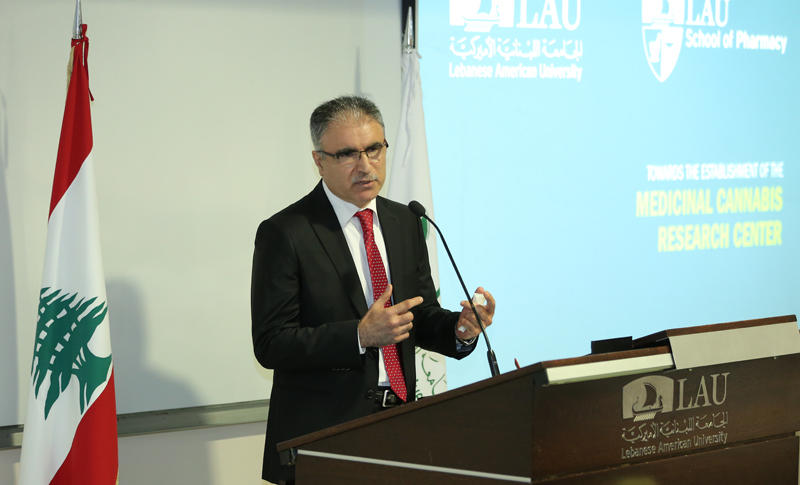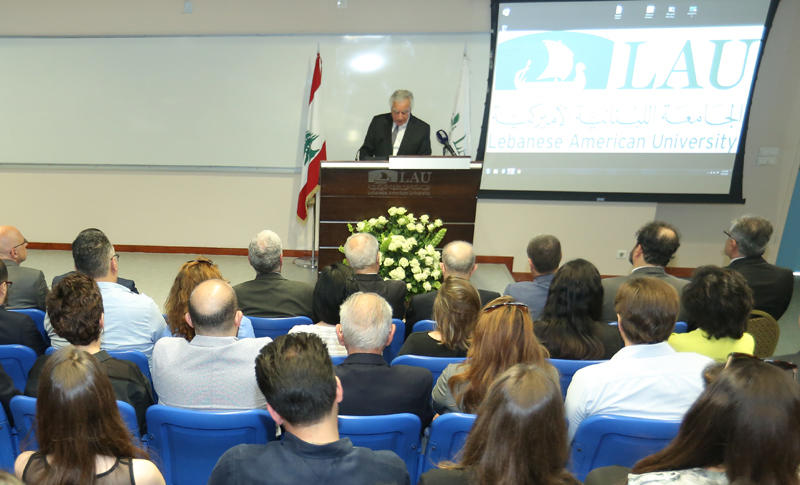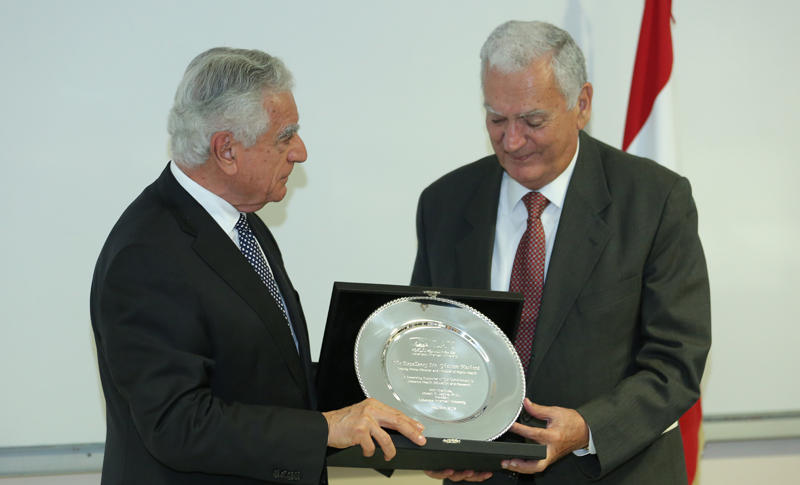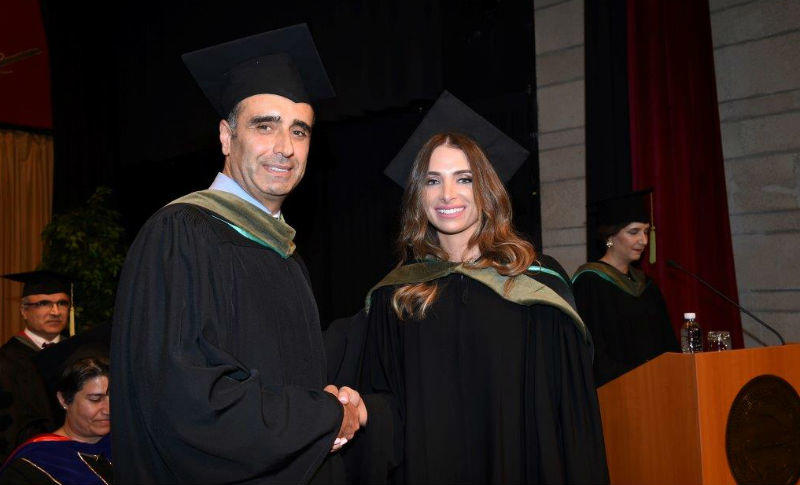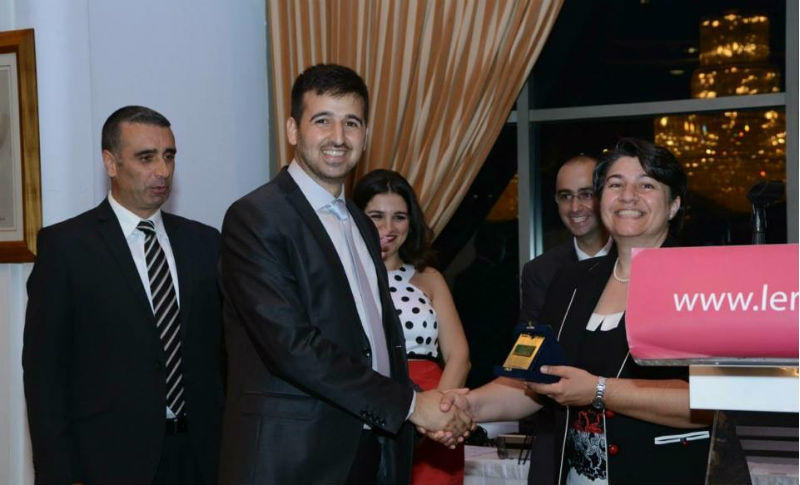Unlocking the Power of Lebanese Cannabis
LAU introduces initiative to establish Medicinal Cannabis Research Center.
Can Lebanon-grown cannabis provide an alternative treatment for certain chronic ailments? Researchers want to find out.
To that end, LAU held an event on May 30 introducing its initiative to establish the Medicinal Cannabis Research Center, which aims to generate evidence-based knowledge on the potential medical value of Lebanon-grown cannabis.
Across the world, medical scientists and healthcare professionals have been exploring the potential therapeutic applications of cannabis. Currently, two cannabis compounds, THC and CBD, have been approved for the treatment of chronic and neuropathic pain, chemotherapy-induced nausea and vomiting in cancer patients, appetite stimulation in AIDS patients, muscle spasticity in Multiple Sclerosis patients, and for refractory epilepsy in children. CBD specifically has been approved for glioblastoma multiforme, a severe and aggressive type of brain cancer. Therapeutic uses are being investigated for other diseases, including Parkinson’s, Alzheimer’s, Crohn’s and anxiety. In addition, the antioxidant and anti-inflammatory effects of cannabis may provide a neuroprotective effect and slow the progression of Parkinson’s disease.
Cannabis for medical use has been legalized in many countries around the world as well as about half of US states, which have amended their laws to allow its use for specific medical purposes.
There are currently 10 academic research centers studying medical cannabis in the world: six in the US, and the others in Canada, the UK and Australia. LAU’s center will be a first in Lebanon and the region.
The distinctive climatic and growing conditions in Lebanon give Lebanon-grown cannabis special characteristics. It is known for its resistance to drought and high temperatures, environmental factors that greatly affect the cannabis’ chemical content, hence its pharmacological characteristics. But so far, Lebanon-grown cannabis hasn’t been well studied or fully characterized, and any assessment of its therapeutic potential presents a unique opportunity for pharmaceutical sciences researchers.
During his speech at the event, held on the Beirut campus, LAU President Joseph G. Jabbra acknowledged the controversy inherent in the study of cannabis. He highlighted the university’s taboo-breaking history, starting with founder Sarah Huntington Smith’s journey from the US to Beirut to establish the first-ever school for women in the Ottoman Empire in 1835, which would become LAU. Like its founder, Jabbra said, LAU blazes new ground in the name of knowledge and advancement, and the Medicinal Cannabis Research Center will help break the social stigma surrounding the issue.
Project spearhead Professor Mohammad Mroueh of LAU’s School of Pharmacy spoke to the audience about the major potential gains of pursuing the study of medical cannabis and eventually manufacturing pharmaceuticals with the beneficial compounds present in the plant. He and President of the Syndicate of Pharmaceutical Plants in Lebanon Carol Abi Karam outlined the medical importance, and economic and social benefits that pharmaceutical cannabis products could bring to Lebanon, including economic gains, reduced unemployment, and a reversal of the brain drain.
“We are awaiting the creation of a legal framework within which we can proceed, with the full support of the Ministry of Public Health,” he said.
On that note, Dr. Bahij Arbid, representing the ministry at the event, said that Lebanese law allows for the licensing of specialized centers to grow otherwise prohibited plants, within the framework of scientific or medical research. The license will have to be issued by and under the conditions of the Lebanese Council of Ministers.
He also highlighted the advantages of this endeavor, especially in terms of turning the country into an “exporter of knowledge.”
Also present at the event were Tatiana Abi Nader (PharmD ‘16) and Zoheir Al Ayash (BS in Pharmacy ‘15), who, as students, first approached Mroueh with the idea for a cannabis research project to supervise.
Once established, the center will present opportunities for collaborative, interdisciplinary research between LAU’s schools of Pharmacy, Medicine, and Arts and Sciences, and universities and research centers in the country and beyond. It will also promote open channels of communication on scientific and regulatory matters with the Ministry of Public Health, Ministry of Social Affairs and Drug Enforcement Bureau.
Researchers at the proposed center hope to study the chemical and biological characterization of the plant and cannabis/cannabis oil formulations. Also, in-vitro and pre-clinical studies are anticipated for the application of cannabis on medical issues including inflammation, cancer, neuro-protection, and its effects on proteins implicated in memory.
The center hopes to tap the expertise of medicinal chemists, pharmacognosists, pharmacologists, physicians and pharmacists.
Funding to establish and run the center will be generated through research grants, pharmaceutical companies, the World Health Organization, the European Commission and other agencies. As this is such a promising field, there is great interest from across the scientific and public-health communities.
With such intensive, interprofessional expertise involved, the project will yield scientific advances that will help researchers and patients across the world.
